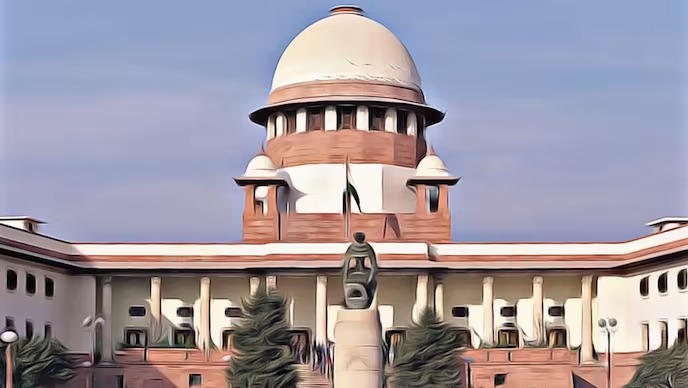Chatterjee, J.@mdashThis is a petition u/s 115 of the Code of Civil Procedure. The purchasers are the petitioners in a matter relating to pre-emption u/s 26F of the Bengal Tenancy Act. The opposite Party No. 1 is the pre-emptor. The factual position on the findings of the courts below is that the purchasers petitioners, the pre-emptor opposite party No. 1 and the vendor amongst others were co-sharers of a holding. It is also clear that the petitioners got their share in the holding by purchase. The Courts below allowed the application for pre-emption. The question that was urged in the Courts below was whether the opposite party pre-emptor was a co-sharer of the holding or not. That being the single question, the Courts answered that question in the positive and allowed pre-emption. As I have stated above, on the findings of the Courts below it cannot be challenged in this Court that the opposite party No. 1, the pre-emptor, was not a co-sharer of the holding. Therefore, prima facie, it appears that the application should have been allowed.
2. It has been urged in this Court that the opposite party No. 1 may be a co-sharer, but the transfer was to the petitioners and the petitioners became co-sharers by purchase. It is urged that ordinarily there is pre-emption by a co-sharer if there is a transfer, but if the transfer is to a co-sharer, then there is no pre-emption. Again if the transfer is to co-sharers whose existing interest accrued by purchase, even then there would be pre-emption. It was held in the Courts below that the petitioners purchased their share in the holding in 1953. Therefore, they became co-sharers by purchase and the result would be again that there would be pre-emption because the transfer would be to persons whose existing interest was acquired by purchase. If the position rests there, then I have no difficulty in agreeing with the Courts below that the petitioners being co-sharers by purchase, pre-emption would still be available but there is a further difficulty.
3. By an amendment of the Estates Acquisition Act in 1956, subsequent to this purchase in 1953 the interest of the occupancy raiyats was declared to be deemed to be that of an intermediary. The result was that u/s 4 of the Estates Acquisition Act the interest of the intermediaries would vest in the State of West Bengal free from all encumbrances and, therefore, the interest of the tenants as tenants under the then landlord would cease and the tenancy would cease. Therefore, whatever interest, the parties had, before the vesting under the Estates Acquisition Act, would be extinguished and the original rights of the parties would be gone. The interest of the petitioners by virtue of their purchase in 1953 (before the vesting) as co-sharers of the tenancy then existing would cease, but subsequent to such vesting and as a result of such vesting the persons, who are deemed to be intermediaries, would still be entitled to retain the land and if they retain the land, they would become tenants of a new tenancy under the State of West Bengal on such terms as the State may prescribe. The terms have now been prescribed under the rules and under the rules if the land is agricultural, they would retain the land under the State with the right of an occupancy raiyat. Hence, at the date of the application for pre-emption which was subsequent to the date of vesting or at the date of the transfer in question which was also subsequent to the vesting, the interest of all the co-sharers in the new tenancy was created not by any act of parties nor by any purchase but by operation of law, namely, the provisions of the Estates Acquisition Act and the rules thereunder. Therefore, the opposite party No. 1 and the petitioners ceased to be co-sharers of the original holding but became co-sharers of a new holding under the State of West Bengal.
4. Hence, if the former co-sharers retained their interest in the land and became co-sharers by virtue of the aforesaid Act and the rules thereunder, the right of pre-emption would accrue because of rule 4 of the Estates Acquisition Rules which attracts section 26F of the Bengal Tenancy Act. In that view of the matter, I would be inclined to hold that the opposite parties 1-3 not being co-sharers of the new tenancy by purchase but having become co-sharers by operation of law, they would not be deemed to be co-sharers by purchase within the meaning of section 26F of the Bengal Tenancy Act, but they would simply be considered to be co-sharers otherwise than by purchase and in that case there would be no preemption.
5. But this legal aspect depends upon a factual aspect which has not been enquired into -- it may be that since the acquisition of the estate by the State of West Bengal, the State of West Bengal have recognised the purchasers, the pre-emptor as holding under the State under different rights and under different tenancies or, in other words, if the property held by the petitioners 1-3, has now been constituted as a separate holding, then there would be no question of pre-emption so far as these petitioners are concerned and in that case also there would be no pre-emption. The result, therefore, is if the State has now recognised different tenancies one in favour of the pre-emptor and another in favour of the purchasers, there would be no pre-emption. Again even if the State have recognised the purchasers and the opposite party No. 1 as co-sharers of newly formed holding, even then the petitioners purchasers, not being co-sharers by purchase, would still be beyond the mischief of section 26F. Therefore, whatever may be the factual position, the legal position remains the same i.e., there is no right of pre-emption. The learned Advocate for the opposite party No. 1 raised a further plea that section 52 of the Estates Acquisition Act was not intra vires. I find nothing to support it. He has referred to two decisions of the Supreme Court reported in (1)
6. The result is that the orders of the Courts below are set aside. The Rule is made absolute. In the circumstances of this case, each party will bear his costs throughout.

